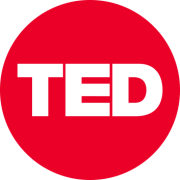https://blog.ted.com/protein-problems-notes-on-session-2-of-ted-countdown-2024-dilemma-series/
- |
Proteins are the building blocks of life — but producing them comes at a cost to our planet and all the species that call it home. Session 2 of the TED Countdown 2024 Dilemma Series took a holistic look at our food system, from the soil that nourishes crops to the animals that graze the land.
Six pioneering speakers explored clean and healthy protein sources ranging from regenerative agriculture and fish farms to cultivating animal-free meat and brewing ethical collagen. Here’s a glimpse into the future of food that’s as innovative as it is essential.
The event: TED Countdown 2024 Dilemma Series: The future of food, hosted by TED’s David Biello and Lindsay Levin
When and where: June 6, 2024, at the TED World Theater in New York City
Speakers: Lamin Jassey, Gabe Brown, Dorcas Naishorua, Andy Jarvis, Fei Luo, Uma Valeti
The talks in brief:
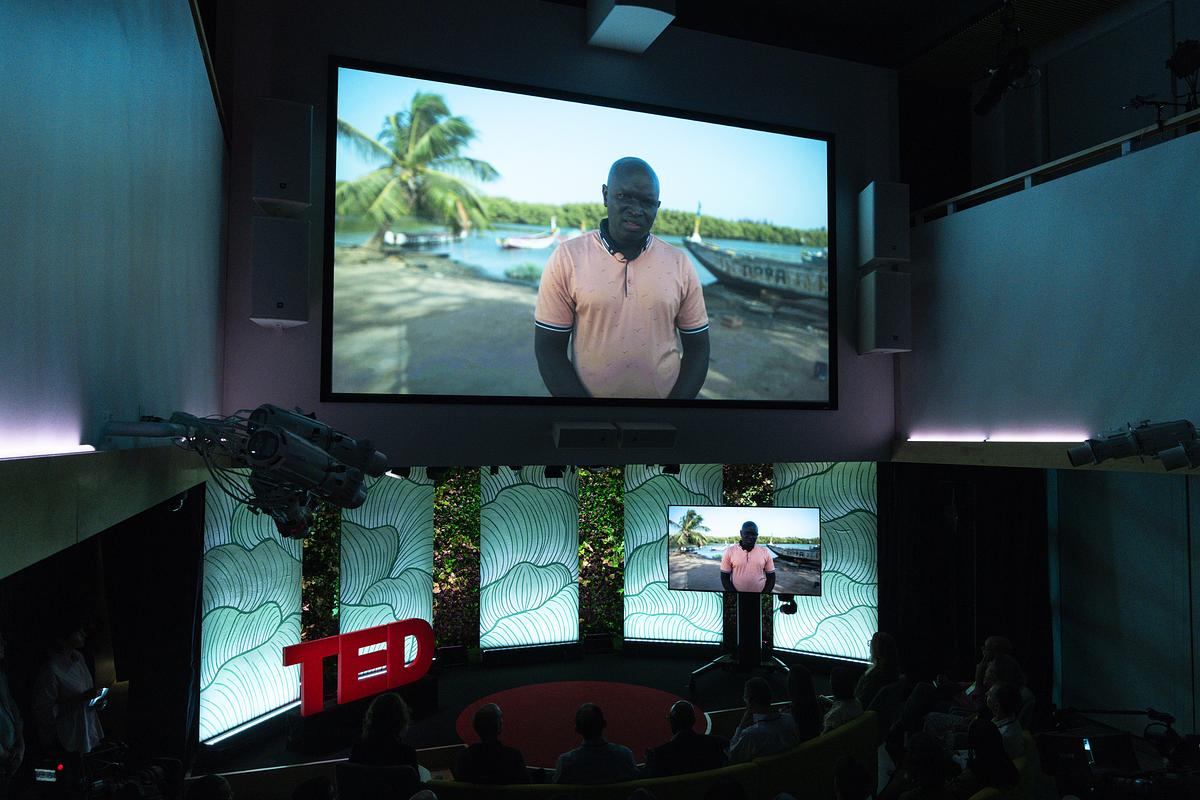
Delivering a pre-recorded talk, Lamin Jassey speaks at Session 2 of TED Countdown 2024 Dilemma Series: The future of food, at the TED World Theater in New York City on June 6, 2024. (Photo: Gilberto Tadday / TED)
Conservationist and community leader Lamin Jassey explains how a fish processing facility in The Gambia brought water pollution and food scarcity to his town, not the promised jobs and profits. He shares how the community has opposed the economic and environmental degradation — for instance, by dismantling a pipe dumping waste into their waters — and calls for more collective action against such harmful factories.
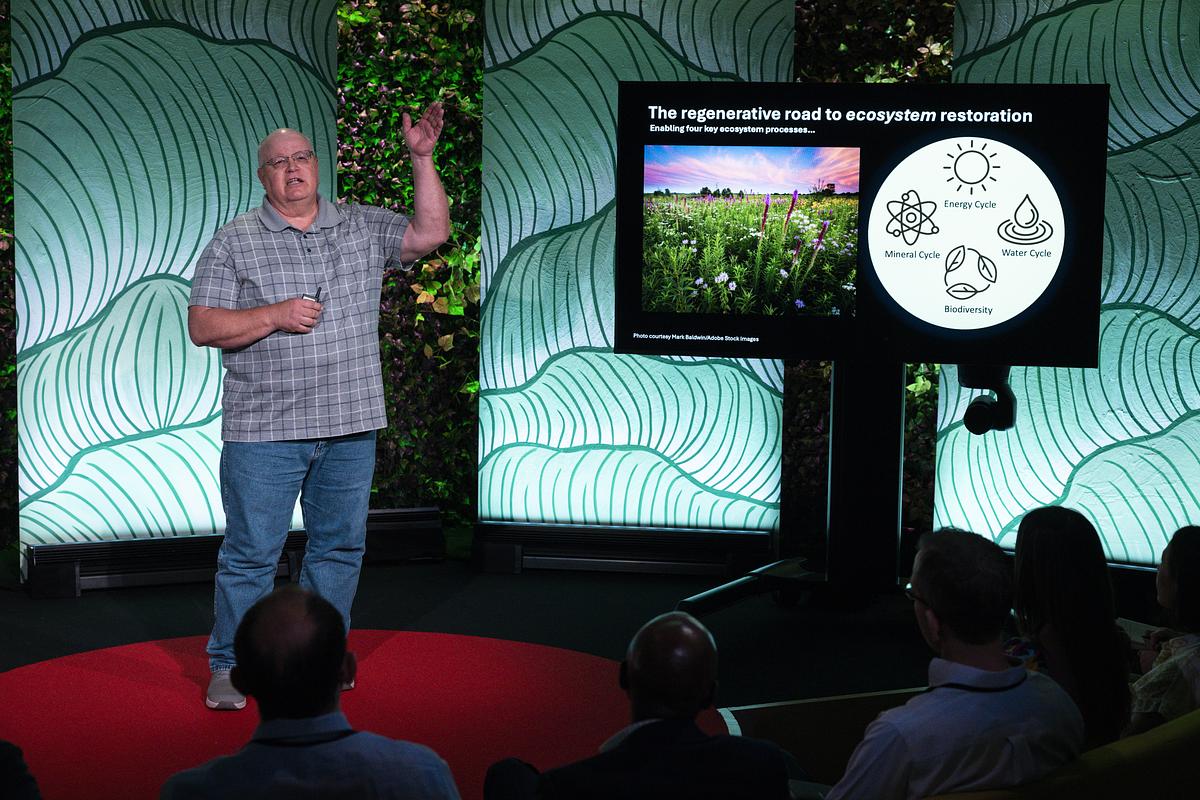
Gabe Brown speaks at Session 2 of TED Countdown 2024 Dilemma Series: The future of food, at the TED World Theater in New York City on June 6, 2024. (Photo: Gilberto Tadday / TED)
After losing most of their crops to hail and drought, farmer Gabe Brown and his wife turned to regenerative agricultural practices like integrating livestock and planting more diversely. The result? Their farm was revitalized. He shares his story — a testament to the transformative potential of restorative farming — and six healthy soil principles to bring life back to the land.
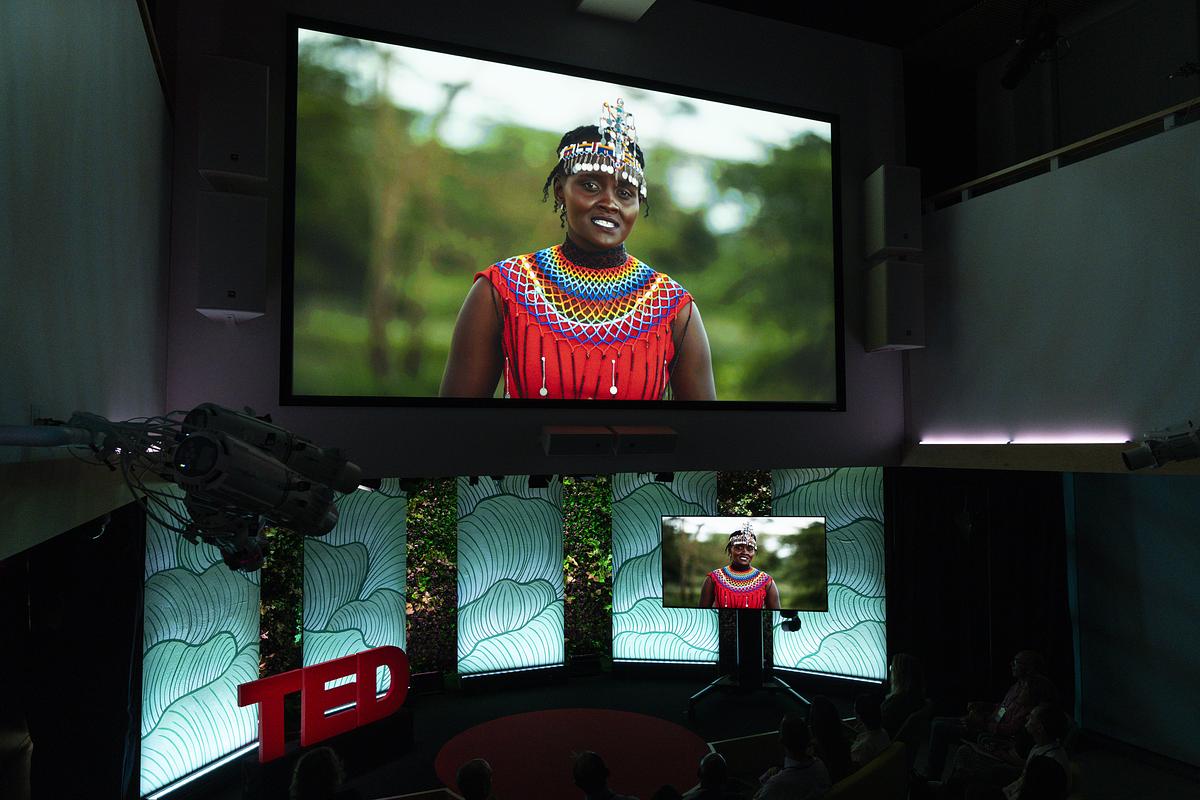
Delivering a pre-recorded talk, Dorcas Naishorua speaks at Session 2 of TED Countdown 2024 Dilemma Series: The future of food, at the TED World Theater in New York City on June 6, 2024. (Photo: Gilberto Tadday / TED)
The Maasai people have lived sustainably off the savannah for centuries, but the climate crisis is causing resource scarcity so severe that families trade their girls for grass, desperate to feed their cattle through the worst droughts. Miss Climate Kenya Dorcas Naishorua advocates for a better way forward, presenting her people’s resilience and sharing how they’ve been forced to adapt to a changing environment.
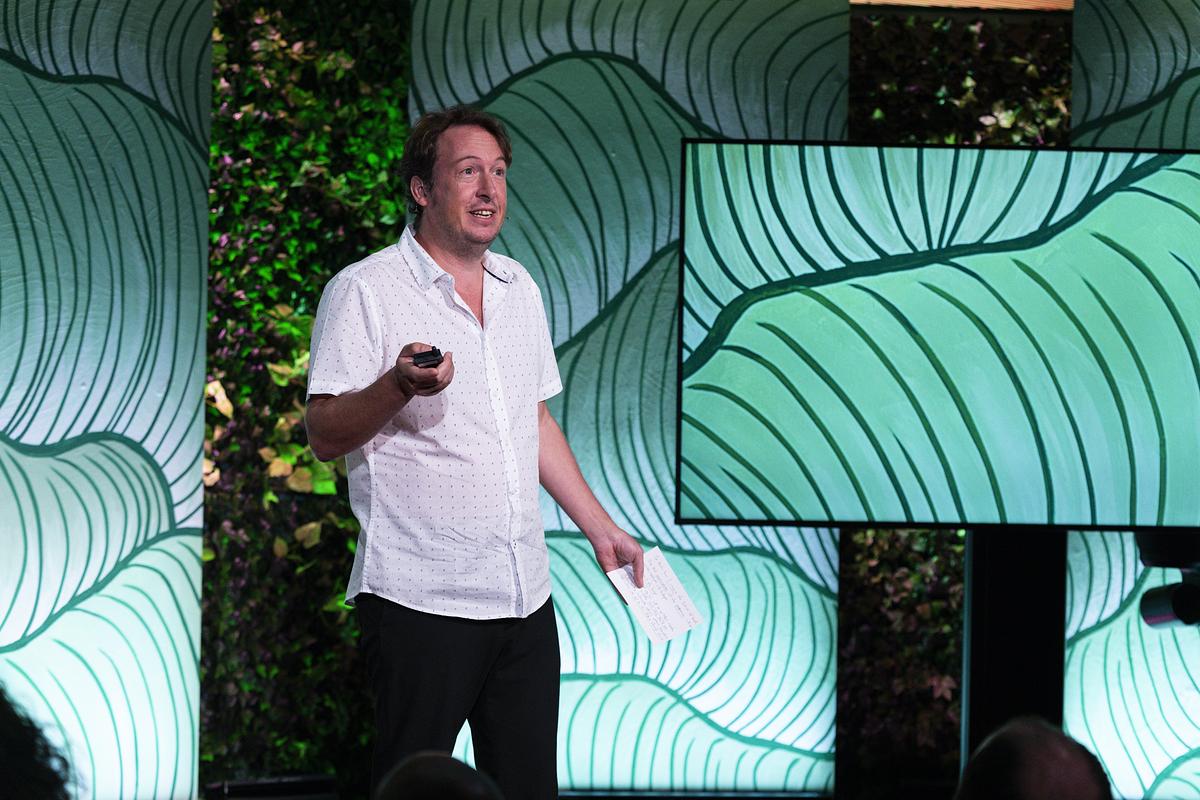
Andy Jarvis speaks at Session 2 of TED Countdown 2024 Dilemma Series: The future of food, at the TED World Theater in New York City on June 6, 2024. (Photo: Gilberto Tadday / TED)
How do we produce food without destroying nature? It won’t be by telling people what to eat, says Andy Jarvis, the director for the future of food at the Bezos Earth Fund. He presents a menu of sustainable options (like alternative proteins and cultivated meat) that could drastically lower food’s carbon footprint while providing people with the nourishment they need.
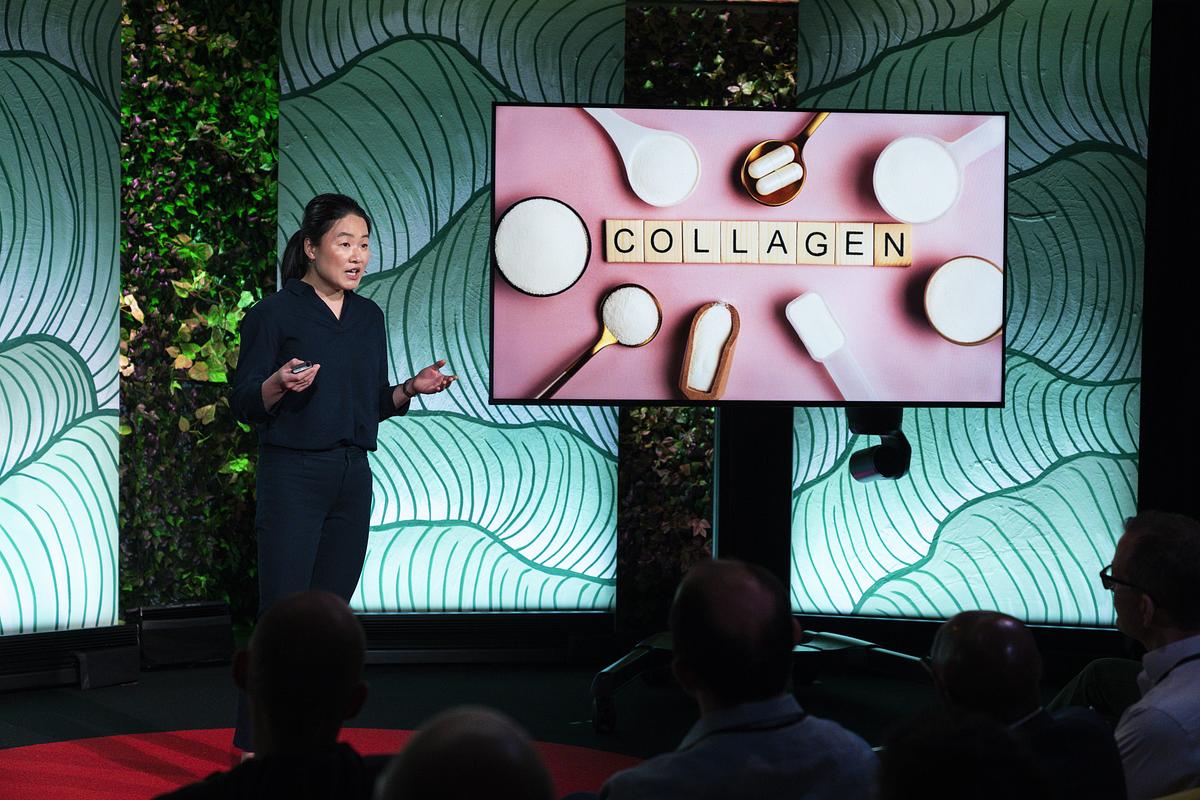
Fei Luo speaks at Session 2 of TED Countdown 2024 Dilemma Series: The future of food, at the TED World Theater in New York City on June 6, 2024. (Photo: Gilberto Tadday / TED)
From cosmetics to nutrition, collagen is used in many ways — but how it’s sourced from animals is ethically questionable and unsustainable, says Fei Luo, chemical engineer and CEO of Liven Proteins, a precision fermentation protein company. She delves into the groundbreaking technology of brewing animal-free collagen, which could pave the way for a functional, tasty and harm-free collagen future.
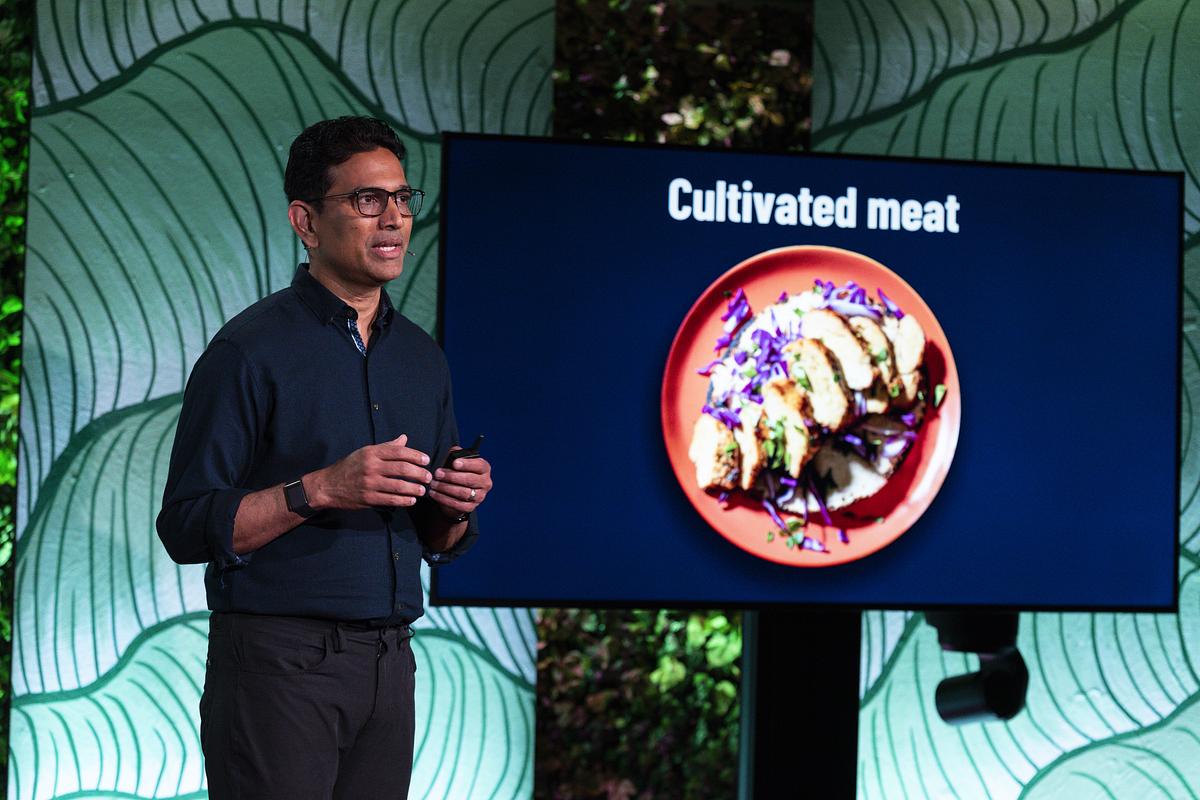
Uma Valeti speaks at Session 2 of TED Countdown 2024 Dilemma Series: The future of food, at the TED World Theater in New York City on June 6, 2024. (Photo: Gilberto Tadday / TED)
The way we make meat is destructive to humans, animals and the environment, says Uma Valeti, the CEO and founder of UPSIDE Foods. He presents a delicious, sustainable solution — cultivated meat, grown directly from animal cells — that could save billions of animal lives and drastically reduce conventional animal agriculture’s harm to the environment and human health.
